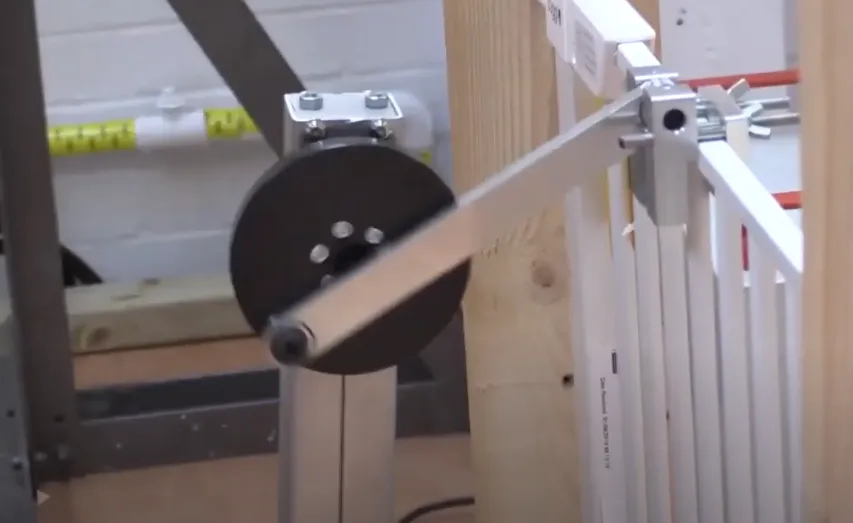BS EN 1130 Cribs and Cradles Safety Testing
The British Standard (BS) and European Norm (EN) 1130 specifies the safety requirements for cribs and cradles intended for use by children. This standard ensures that all products on the market are designed with child safety in mind, covering various aspects such as structural integrity, material compatibility, and ergonomic design. Compliance with this standard is crucial for manufacturers to ensure their products meet rigorous safety standards set forth by regulatory bodies.
The testing process under BS EN 1130 involves multiple stages aimed at evaluating different critical factors that could pose a risk to children using the cribs or cradles. These stages include but are not limited to:
- Structural stability
- Mechanical strength of components
- Material compatibility and durability
- Ergonomic design ensuring safe sleeping positions
- Toxicity testing for materials used in the product
The structural integrity test, for instance, assesses whether the crib or cradle can withstand certain forces without collapsing. This is vital because collapsed cribs could lead to accidents where children might get hurt during sleep.
Material compatibility tests ensure that no hazardous substances are released into the environment, which could affect a child's health adversely. For example, if a crib uses paint containing lead, it would fail this part of the test. Similarly, durability tests check how well the materials hold up over time under normal usage conditions.
Ergonomic design evaluation focuses on ensuring that the sleeping position provided by the crib or cradle is safe and comfortable for children. This includes aspects like slope angles which should not be too steep to prevent infants from rolling off during sleep. In addition, there are specific requirements regarding guardrails height and spacing to avoid entrapment risks.
| Type of Test | Description |
|---|---|
| Structural Stability Test | Evaluates the ability to withstand applied forces without collapsing. |
| Mechanical Strength Test | Assesses resistance against deformation or failure under specified loads. |
| Toxicity Testing | Determines whether any hazardous substances are released into the environment. |
| Ergonomic Design Evaluation | Ensures safe sleeping positions and prevents injuries through proper design parameters. |
Benefits
Adhering to the BS EN 1130 standard brings numerous benefits beyond just meeting regulatory requirements. It enhances brand reputation by demonstrating commitment to child safety and welfare, thereby building trust with parents who are concerned about their children's well-being.
From a business perspective, compliance can open up new markets where stringent safety regulations apply. Manufacturers that pass these tests also enjoy higher levels of consumer confidence, potentially leading to increased sales volume. Moreover, it helps in maintaining long-term relationships with suppliers and partners by ensuring consistent quality across the supply chain.
In terms of product development, this standard encourages innovation towards safer designs while reducing potential liabilities associated with non-compliance lawsuits or recalls. By staying ahead of regulatory changes through proactive testing, companies can anticipate future trends in safety standards, giving them a competitive edge.
Industry Applications
| Type of Test | Description |
|---|---|
| Structural Stability Test | Evaluates the ability to withstand applied forces without collapsing. |
| Mechanical Strength Test | Assesses resistance against deformation or failure under specified loads. |
| Toxicity Testing | Determines whether any hazardous substances are released into the environment. |
| Ergonomic Design Evaluation | Ensures safe sleeping positions and prevents injuries through proper design parameters. |
Environmental and Sustainability Contributions
- Reduces waste by ensuring products are durable and reliable, reducing the need for frequent replacements.
- Promotes safer disposal practices as materials used comply with environmental regulations.
- Encourages responsible sourcing of raw materials that do not harm ecosystems or contribute to pollution.





